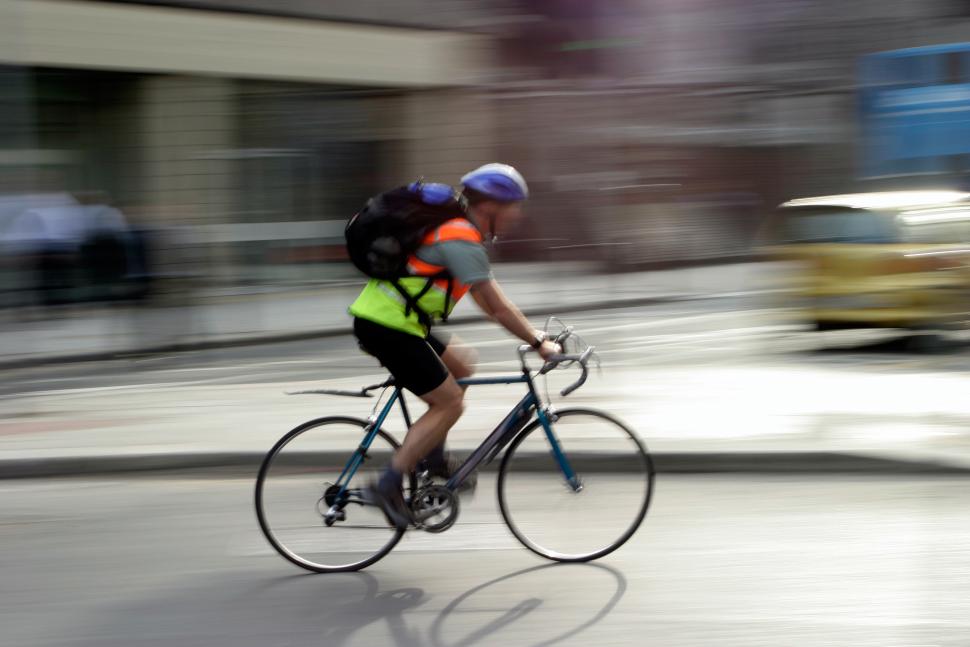- News
- Reviews
- Bikes
- Accessories
- Accessories - misc
- Computer mounts
- Bags
- Bar ends
- Bike bags & cases
- Bottle cages
- Bottles
- Cameras
- Car racks
- Child seats
- Computers
- Glasses
- GPS units
- Helmets
- Lights - front
- Lights - rear
- Lights - sets
- Locks
- Mirrors
- Mudguards
- Racks
- Pumps & CO2 inflators
- Puncture kits
- Reflectives
- Smart watches
- Stands and racks
- Trailers
- Clothing
- Components
- Bar tape & grips
- Bottom brackets
- Brake & gear cables
- Brake & STI levers
- Brake pads & spares
- Brakes
- Cassettes & freewheels
- Chains
- Chainsets & chainrings
- Derailleurs - front
- Derailleurs - rear
- Forks
- Gear levers & shifters
- Groupsets
- Handlebars & extensions
- Headsets
- Hubs
- Inner tubes
- Pedals
- Quick releases & skewers
- Saddles
- Seatposts
- Stems
- Wheels
- Tyres
- Health, fitness and nutrition
- Tools and workshop
- Miscellaneous
- Cross country mountain bikes
- Tubeless valves
- Buyers Guides
- Features
- Forum
- Recommends
- Podcast
news
 Commuter cyclist
Commuter cyclistNo growth in cycling across England last year
The Department for Transport’s (DfT’s) Local Area Walking and Cycling Statistics report, released yesterday, concludes that there has been “no statistically significant change in reported cycling prevalence in England overall.”
Based on the Active People Survey, the annual Sport England telephone survey, the report states that around 15 per cent of adults in England cycled at least once a month in 2014/15. Equivalent to around 6.5 million people, this is a similar level to previous years. Cycling rates at higher frequency levels have also seen no significant change.
Needless to say, cycling rates vary greatly between authorities. At one end of the scale are Cambridge and Oxford where 58 per cent and 43 per cent of people cycle at least once a month. At the other end, we have Burnley, where only five per cent of people ride that often.
Wandsworth saw the highest annual increase in 2014/15, rising to 31 per cent from 18 per cent the year before. It is perhaps worth noting that the area has recently benefited from access to Cycle Superhighways 7 and 8.
Other than Wandsworth, South Norfolk and Barrow-in-Furness also saw major rises, by 25 per cent and 19 per cent. However, it doesn’t need pointing out that these gains must of course be balanced out by drops elsewhere for levels nationwide to have remained the same.
Recreational cycling is slightly more common than utility cycling, but in both cases levels drop away in the 16-24 and 25-34 age groups. There is then a peak in the 35-44 age category before a steady decline from then on.
A lower proportion of women cycle than men in all age groups. Overall, 20 per cent of men cycle compared to 10 per cent of women. The annual British Social Attitudes Survey found that a large number of people believe cycling is too dangerous for them and women were more likely to reach that conclusion than men to (71 per cent against 57 per cent).
Alex has written for more cricket publications than the rest of the road.cc team combined. Despite the apparent evidence of this picture, he doesn't especially like cake.
Latest Comments
- David9694 2 sec ago
Car flips after crash on Honicknowle Lane in Plymouth...
- thax1 4 hours 6 min ago
Interesting to note the points on inability to get GPS lock at times....
- Daniel Elvebak 4 hours 56 min ago
Yes, that's what I meant. But Global Nomad is spot-on as well.
- RoubaixCube 5 hours 10 min ago
They absolutely put their foot in it with that one!
- chrisonabike 7 hours 41 min ago
Apparently someone did a study on this......
- Smoggysteve 8 hours 11 min ago
Funnily enough, I do and police Scotland are useless.
- MinardiM189 10 hours 14 min ago
I totally hate the team selection process. So that is it for me with Velogames
- Steve K 11 hours 9 min ago
Drivers have to drive on the left, and when there is more than one lane (except at junctions) stay in the left lane except when overtaking. There...
- the little onion 12 hours 5 min ago
DO IT FOR YOOOOOOOORKSHIIIIIRE
Add new comment
6 comments
The more we publicise new segregated cycling infrastructure the greater the gestalt of unsafe infrastructure. Maybe good stuff implicitly stories the bad stuff as dangerous and causes a corresponding arrest in the growth of cycling elsewhere (I dunno).
I didn't get a call - maybe I was out cycling!
who'd have thought
minimal infrastructure investment
+ media demonisation of cyclists
+ zero protection from the authorities from dangerous drivers
= no increase in cycling
?
I'm baffled
Worth quoting just to reinforce how stupid the DfT are.
Windiest in 20 years. I know because I looked it up following an argument with my wife who seems to think that sitting indoors trumps my experience of actually being out in the wind...
It was very windy last year though.